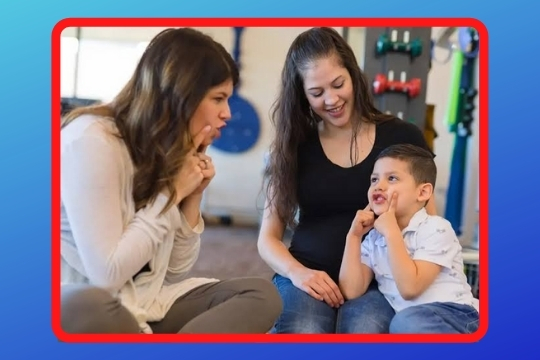Paediatric Speech And Language Disorders

Children are born with the ability to learn a language; nevertheless, they must learn the language(s) that their family and environment use. Learning a language takes time, and children differ in their ability to acquire language and speech milestones. While learning, typically developing youngsters may have difficulty with certain sounds, words, and phrases.
Which kids are at risk of developing linguistic disorders?
Although the reason is often unknown, children who are at risk for a language impairment include those who have:
• Language issues in the family
• Premature delivery
• Low birth weight
• Hearing loss
• Autism
• Thinking impairments
• Genetic illnesses such as Down syndrome
• Fetal alcohol spectrum disorder
• Stroke
• Brain damage
• Tumors
• Cerebral palsy
• Poor nutrition
• Failure to flourish
How are language impairments in children diagnosed?
Your child's healthcare practitioner will inquire about his or her
language skills. Your child's medical history will also be considered by
the provider. A physical examination and hearing tests may be
performed on your youngster. Your child's doctor will most likely
recommend him or her to a speech-language pathologist (SLP). This
expert can assist you in diagnosing and treating your kid.
During play, an SLP will assess your kid. This may be done with other
kids in a group environment. It might also be done with your youngster
one-on-one. The SLP will assess how your child:
• Speaks
• Listens
• Follows directions
• Understands the names of objects
• Repeats phrases or rhymes
• Participates in other language activities
What are the signs and symptoms of a child's language disorder?
Receptive language impairment affects children's ability to comprehend language. They have difficulty understanding what they hear and see. This includes words they read in books or on signs, as well as people speaking to them. It can make learning difficult. It must be dealt with as soon as possible.
A kid with receptive language problem may struggle with the following:
• Interpreting what others say
• Recognizing gestures
• Recognizing concepts and ideas
• Recognizing what they read
• Learning new words
• Responding to inquiries
• Following directions
• Identifying items
A youngster with expressive language impairment has difficulty
communicating. Other people's words may be understood by the
youngster. However, individuals struggle to communicate and
frequently are unable to convey their feelings and thoughts. Both
written and spoken language might be affected by the illness. Even
youngsters who communicate via sign language may have difficulty
expressing themselves.
A kid with expressive language impairment may struggle with the
following:
• Correctly using words
• expressing thoughts and ideas
• telling tales
• using gestures
• asking questions
• singing songs or reciting poetry
Book Appointment
